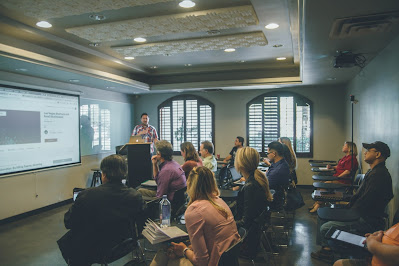Mass Gathering Medicine: Ensuring Health and Safety at Large Events
Introduction
Mass gatherings, whether they are sporting events, music
festivals, religious pilgrimages, or political rallies, have always held a
unique place in human culture. These gatherings bring people together for
various purposes, fostering a sense of community and shared experiences.
However, they also present significant challenges in terms of public health and
safety. Mass gathering medicine is a specialized field dedicated to addressing
the unique healthcare needs and potential risks associated with such events. In
this article, we will explore the key aspects of mass gathering medicine and
its critical role in ensuring the well-being of attendees.
Understanding Mass Gathering Medicine
Mass gathering medicine is a multidisciplinary field that
focuses on the planning, preparedness, and response to healthcare issues that
can arise when large numbers of people congregate in one place. It encompasses
various aspects, including public health, emergency medicine, disaster
management, and crowd psychology. The primary goal of mass gathering medicine
is to minimize health risks, provide immediate medical care when needed, and
enhance the overall experience for attendees.
1: Pre-event Planning and Risk Assessment
One of the fundamental aspects of mass gathering medicine is
meticulous pre-event planning and risk assessment. Event organizers, in
collaboration with healthcare professionals and local authorities, must assess
potential health risks and develop comprehensive plans to mitigate them. This
includes considering factors like crowd size, venue suitability, weather
conditions, and the specific needs of attendees.
Pre-event planning involves the establishment of medical
facilities, medical personnel deployment, and the development of communication
strategies for emergency response. In addition, it is essential to anticipate
and prepare for potential outbreaks of infectious diseases, as large gatherings
can facilitate the rapid spread of infections.
2: Medical Infrastructure and Support
The provision of adequate medical infrastructure and support
is critical to the success of any mass gathering. Medical tents, first aid
stations, and ambulance services should be strategically positioned throughout
the event venue. These facilities should be equipped with essential medical
supplies and staffed with trained healthcare professionals capable of handling
a range of medical emergencies.
Moreover, medical teams should be prepared to provide not
only immediate care but also to manage chronic medical conditions and handle
injuries resulting from accidents or crowd-related incidents. Mass gathering
medicine also emphasizes the importance of coordination between on-site medical
teams and local hospitals to ensure a seamless continuum of care.
3: Crowd Management and Behavioral Psychology
Understanding crowd behavior and psychology is essential in
mass gathering medicine. Large gatherings can lead to overcrowding, which in
turn can result in accidents and medical emergencies. By studying crowd
dynamics and behavior, event organizers can implement strategies to reduce the
risk of stampedes or overcrowding-related incidents.
Additionally, educating attendees about safety measures and
creating clear communication channels for emergency announcements can help
manage crowd behavior effectively. The goal is to create an environment where
attendees can enjoy the event while feeling safe and secure.
4: Infectious Disease Control
Infectious disease control is a significant concern at mass
gatherings, as these events can facilitate the rapid transmission of diseases.
Mass gathering medicine professionals work closely with public health agencies
to monitor and respond to potential disease outbreaks. This includes
implementing vaccination programs, ensuring access to clean water and
sanitation facilities, and conducting health screenings for attendees.
During the COVID-19 pandemic, mass gathering medicine took
on even greater importance as events around the world faced cancellations or
restrictions. The field played a pivotal role in devising strategies to hold
events safely, such as implementing mask mandates, social distancing measures,
and testing requirements.
Conclusion
Mass gathering medicine is a crucial field that plays a
pivotal role in ensuring the health and safety of attendees at large events.
Through meticulous pre-event planning, the provision of adequate medical
infrastructure, an understanding of crowd behavior, and effective infectious
disease control, professionals in this field help create an environment where
people can come together to celebrate, worship, or enjoy their shared interests
without compromising their well-being.
As society continues to navigate the challenges of hosting
large gatherings in the face of evolving health threats, the importance of mass
gathering medicine will only grow. By prioritizing the health and safety of
attendees, event organizers and healthcare professionals contribute to the
success and longevity of these cherished gatherings.




Comments
Post a Comment